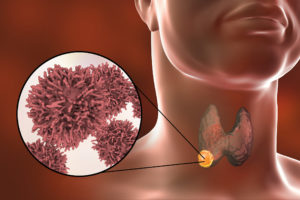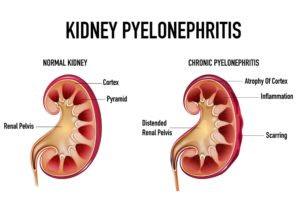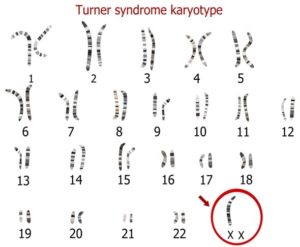What is PLAB?
- The Professional and Linguistic Assessments Board (PLAB) exam is currently the most popular way among International Medical Graduates (IMGs) to get General Medical Council (GMC) Registration and License to work in the UK as a medical doctor.
- If you have graduated from a medical school that is outside EEA, Switzerland, or the UK, you may need to take this test in order to work in the UK as a doctor.
- The other ways to get GMC Registration for IMGs are-
- An acceptable postgraduate qualification (such as MRCP/MRCS)
- Certificate of Eligibility for Specialist Registration (CESR)/ Certificate of Eligibility for GP Registration (CEGPR)
- Sponsorship
Parts of PLAB exam
- PLAB part 1
- PLAB part 2
PLAB part 1 is a three-hour exam with 180 MCQs (Multiple Choice Questions).
PLAB part 2 is a three-hour practical exam with 18 OSCE (Objective Structured Clinical Exam) stations, each station lasting 8 minutes.
Requirements to sit for PLAB exam
- Completion of an acceptable Primary Medical Qualification (PMQ)
- Valid English Language Proficiency (not required for PLAB-2)
- IELTS (Academic), or
- OET (Medicine)
IELTS score requirement- At least a score of 7.0 in each module + At least a total score of 7.5.
OET grade requirement- At least grade B in each module.
These scores must be obtained together from your latest exam sitting.
IELTS and OET- both remain valid for a period of 2 years.
Benefits of passing PLAB test
- You can apply for GMC registration with a license to practice.
- GMC Registration through PLAB + 1 year of supervised training in the UK- you can apply for medical registration in Australia.
- GMC Registration through PLAB + 3 years supervised training in the UK- you can apply for medical registration in New Zealand.
- Completed PLAB 1 + valid IELTS/OET- you become eligible for NZREX clinical (New Zealand Registration Exam).
- Completed PLAB 1- you become eligible for PRES 3 (Pre Registration Examination System) of Ireland.
PLAB vs MRCP/MRCS
PLAB | MRCP/MRCS |
It is only a registration exam | It is a postgraduate qualification and it also lets you apply for registration |
2 part exam | 3 part exam |
Exams are comparatively easier | Exams are comparatively harder |
Takes less time to complete | Takes a longer time to complete |
Less cost | More cost |
After completing your PLAB exam, you normally start working in the UK as a junior doctor (Foundation Years) | Having your MRCP/MRCS completed means that you have the qualifications to become a registrar, provided you have the required clinical experience. |
Is the MRCP mandatory to progress your career in medicine in the UK?
- Yes, sooner or later you will require MRCP for career progression.
- PLAB only allows you to get registration with license and you can work in the junior posts for as long as you want.
- But in order to progress your career to becoming a consultant in medicine, you need to go through higher specialty training and MRCP is a requirement to apply for higher specialty training.
Learn more about and apply for MRCP from- https://www.mrcpuk.org/
Planning for your PLAB journey
The entirety of your PLAB pathway until your GMC Registration involves a number of steps-
- IELTS/OET booking
- IELTS/ OET completion
- Opening a GMC account (you need this to book your exams)
- PLAB-1 booking
- PLAB-1 completion
- PLAB-2 booking
- Academy/ course booking
- Planning your stay in the UK
- Applying for standard visitor visa for the UK
- EPIC verification (you can do it any time before your GMC Registration)
- Purchasing any other study materials
- Return flight booking
- Traveling to the UK for academy and exam
- PLAB-2 test completion
- GMC Registration application
Once you decide you will go through the PLAB pathway to get your GMC Registration. It is important to carefully plan the timing and how you will proceed with the steps. Also, you need to bear in mind about the cost involved in every step.
Here, I will try to give a very gross idea about the PLAB exams, share some of my advice, and touch some other points of the PLAB pathway that might help your planning.
IELTS or OET?
Whether you will give IELTS or OET is entirely up to you. For your PLAB exam, both have the same value. These are the major differences you might consider before making a decision-
- IELTS is cheaper compared to OET
- Cost of IELTS (Academic): £160 – £180
- Cost of OET (Medicine): £350 – £370
- IELTS has a wider range of acceptability and thus it is suitable for people planning to apply for postgraduate courses (such as MSc).
- Many people find OET comparatively easier with short preparation time.
Applying for PLAB exam
- Once you have completed your English proficiency test, open a GMC account. Website: https://www.gmc-uk.org/
- Put in your English test result in the designated slot
- Start applying online for your PLAB exam
PLAB 1 details - venue, cost, topics, scoring, eligibility, resources, and study approach
Venue
Australia, Bangladesh, Canada, Egypt, Ghana, India, Nigeria, Pakistan, Saudi Arabia, Srilanka, Sudan, UAE and UK.
Cost- £239
Topics-
- The PLAB exam covers almost all aspects of medical science.
- You will have most questions from medicine (with specialties) and also a few from pediatrics, ethics, pharmacology, anatomy, psychiatry, surgery, urology, orthopedics, vascular surgery, ophthalmology, ENT, obstetrics & gynecology, and statistics.
Scoring system-
- 1 mark for each of 180 questions
- Total Mark of 180
- No negative marking for wrong answers
Eligibility criteria-
- A score equal to or more than the passing score for that day
Passing score varies each exam; the average passing score is around 115-125.
Resources-
- PLAB 1 keys
- Plabable
- Plabverse
- 1700 question bank by Dr. Khalid
- Facebook groups
- Whatsapp groups
- Telegram Groups
- Oxford Handbook of Clinical Medicine
- Oxford Handbook of Clinical Specialties
Study time- 3-4 months
Study time per day- 4-6 hours
Study approach-
- Question banks are being updated regularly along with the change of question patterns. So pick your question bank wisely.
- Try to complete them at least two times, leaving a two weeks gap before exam.
- Give mocks for a week.
- In the last week work on your weaknesses.
- Question discussions are always going on in Facebook, WhatsApp and Telegram groups. Follow them in your free time.
- Always use the Oxford Handbooks as reference.
PLAB 2 details - venue, cost, topics, scoring, eligibility, resources, and study approach
Venue- UK (Manchester)
Cost- £875
Topics-
- Like PLAB-1, this exam will also cover all aspects of medical science.
- Typically station are divided into-
- History taking station (Medicine, Surgery, Obstetrics & Gynecology, Pediatrics, Psychiatry, Ophthalmology, ENT, Dermatology),
- Ethical station
- Counseling Station (Breaking bad news, managing angry patient, medical error, medication/ report discussion),
- Procedure station
- Combined station (history taking + examination + management)
- Teaching station
- Simman station
Scoring system-
- In each station, you will be marked in three domains- data gathering (4), management (4) and interpersonal skills (4)
- With 12 marks in each of the 18 stations, this exam has a total mark of 216
Eligibility criteria-
- Pass at least 11 stations, AND
- Get a score equal to or above the pass mark for that day
Passing score varies each exam; the average total passing score is around 115-130.
The passing score for each station also varies; the average passing score for each station is around 6-7.
Resources-
- Academy and their notes
- Different course’s videos (I-medics or Bromley Emergency Courses)
- Audio Guides (Dr. Arora’s Audiobooks)
- Telegram groups
- WhatsApp Groups
- Facebook groups
- YouTube videos: Geeky Medics or Dr. Ankur’s Examination Videos
- NICE guidelines: https://www.nice.org.uk/
- NHS website: https://www.nhs.uk/
- Oxford Handbook of Clinical Medicine
- Oxford Handbook of Clinical Specialties
Study time- 1 month before the academy, 6-8 weeks of practice after the academy
Study time per day- 6-8 hours
Study approach-
- After you book your PLAB-2 exam and your academy, you will have some spare time before your academy starts
- Utilize that time to go through your scripts
- If possible, collect and go through any other resources
- After completing your academy, make a study group
- Try to practice each station at least twice
- Practice in a way you intend to do deliver real exam
- Try to finish in time when you are practicing
- In the last few days before the exam, practice 1 or 2 stations from each of the station types
- Look into Oxford Handbooks for reference
- For management, you can see the NHS website
- Do not memorize scripts. Come up with your own format, go with the flow of the patient, and trust your instinct
GMC Registration
- As soon as you have passed your PLAB-2 exam, you have gained the eligibility to apply for GMC Registration.
- If you have completed your 1-year house job in your home country you can apply for a permanent registration.
- If you have not completed your house job, you will be applying for a provisional registration.
- Once you submit your application for registration, you will get 28 days to submit your documents.
- After that it might take as much as 10 days on average to get your registration.
Application fee-
- for provisional registration with a license to practice- £52
for permanent registration with a license to practice- £156 (if you now have or previously had a provisional registration OR, you passed your primary medical qualification within the last 5 years from your date of application); £406 for people not in this criteria
Applying for NHS Jobs
- You can start applying for jobs after your PLAB-2 exam, even before you get your GMC Registration in hand, although most jobs would want you to already have registration
- One of the popular ways to apply for a job is to open an account at ‘NHS Jobs’ website (https://www.jobs.nhs.uk/), where you create your own profile mentioning your abouts , education, experience and other supporting information. This profile basically acts like your CV
- In this website, you will find advertisements for almost all the vacancies in the NHS
- Other websites where you can find NHS job advertisements at- Health Jobs UK, BMJ Career, etc.
Salary of a doctor in the UK
Your salary varies depending upon which stage of training you are at.
Grade | Basic Annual Pay |
Foundation Year 1 | £ 27,689 |
Foundation Year 2 | £ 32,050 |
Specialist Training (ST 1-8) | £ 37,935- £ 48,075 |
Specialist Doctors | £ 40,037- £ 74,661 |
Consultant | £ 77,913- £ 105,042 |
Additional salary for extra hours.
Want to know more in detail?
- In order to know about the most updated information and for any clarification, check the GMC website: https://www.gmc-uk.org/
- Like any other international exam pathway, the PLAB route too might seem a bit complicated. There are so many blogs all over the internet that will guide you along your PLAB pathway. These blogs are there to guide you in every step and will give you a more detailed idea, like what papers you might need or what you can expect from a particular process. Here are some I know that might be really helpful.
- Road to UK
- Naseer’s Journey
- Omars Guidelines
- The Savvy IMG
- You might get to know some things from various Facebook PLAB groups as well.
I have tried my best to give you a very gross idea regarding the PLAB exam. These are just the very basics you might want to know before you decide if you want to give PLAB or not. Once you make your decision, of course you will want to know more in detail and might require assistance along the way. The GMC website and PLAB oriented blogs are there to help. I have also shared a few pieces of advice from my personal experience (study times and approach) but there are many other approaches that may benefit people as well.
All the best !




Pingback: cialis 20mg low price